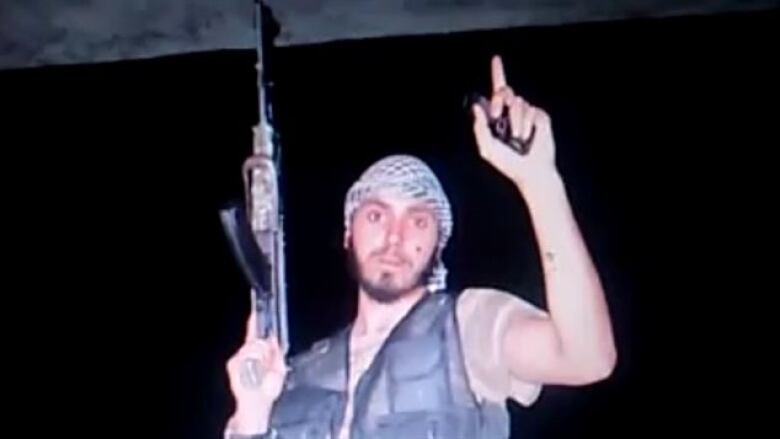Ismael Habib trial: Did RCMP break rules during undercover sting?
Crown, defence in terrorism-related trial spar over whether damning confession is admissible evidence

If someone offered you what you wanted most in the world, what would you say to get it?
Ismael Habib's defence lawyer Charles Montpetit argues you'd say anything which is what he says his client did when he was caught ina Mr. Big-style sting in February 2016.
- Ismael Habib trial: Defence questions legitimacy of Mr. Big sting confession
- Ismael Habib confesses to whipping Syrian prisoner, supporting ISIS in Mr. Big sting
Habib, 29, is accused of trying to go overseas to commit terrorist acts and of providing false information to obtain a passport.
In the course of the police sting, he confessed to an undercover agent posing as a crime boss peddling fake passports that once he found a way out of Canada,he planned to goto Syria to fight with ISIS.
Unbeknownst to Habib, his confession was videotaped, and the Crown, led by federal prosecutor Lyne Dcarie, aired thattape to bolster its arguments.

Dcarie wrapped the Crown's arguments in December. The trial, now in its 11th day,resumed after a month-long break.
The admissibility of the confession is the subject of a voir dire an inquiry within the trial to determine whether the judge will consider it as part of the evidence.
Mr. Big or Mr. Average?
The RCMP undercover operations in Habib's investigation bareall the hallmarks of a classic Mr. Big sting.
A Mr. Big sting sees a suspect slowly integrated with a fictitious crime organization until he or she confesses to have committing a crime.
Mr. Big stingshave resulted in hundreds of recorded confessions, often in cold case murders.
However, in 2014, alandmark Supreme Court decision put limits on how police are allowed to use Mr. Big stings.
If Quebec Court Judge Serge Dlisle finds the police went beyond those limits in obtaining Habib'staped confession, he could rule that confession inadmissible.
Dcarieargues this was not a typical Mr. Big sting but a toned-down version where the stakes were less high.
"Is this a Mr. Big or a Mr. Average?" she asked rhetorically.
Other Mr. Big stings have included the threat of violence to the subject.
The prosecution has arguedthat there was no coercion in this operation,and Habib had the opportunity to leave the organized crime group whenever he wanted with no repercussions.
Is poutine a bribe?
In other stings, undercover police offered suspects expensive bribes to keep them co-operating.
In Habib's case, every time undercover officers took him for food, he ate poutine a meal that only costs a few dollars.

But the defence argues even without the threat of violence or the enticement of cash or pricey gifts, what the fictitious organized crime group was offering Habibwas much more valuable to him.
It wasan organization that offered fraudulent passports.
Doting dad or ISIS member?
Habib has a wife and two small children overseas. The court has heard repeated testimony that hedesperately wanted to go overseas to be with them.
Montpetit is arguing Habib wanted a passport more than anything in the world. After being denied a legal Canadian passport, the court has heard he tried to access illegal documents in order to get out of the country.
Though undercover officers didn't threaten him with violence or entice him with cash, in implying they could help him leave Canada, they were giving him what he wanted more than anything and Montpetitargued Habibwouldhavesaid anything to stay on good terms with "the Boss."
"It's exploitation of his desire to leave the country," said Montpetit.
The judge pointed out thatMontpetitdid not address the factHabibtold undercover agentshe only planned to spend two weeks with his familybefore travelling to fight with ISIS in Syria.
Habib is the first adult in Quebec to be tried under this section of the Anti-Terrorism Act, enacted under the former Conservative government in 2013.












_(720p).jpg)


 OFFICIAL HD MUSIC VIDEO.jpg)
.jpg)



























































































